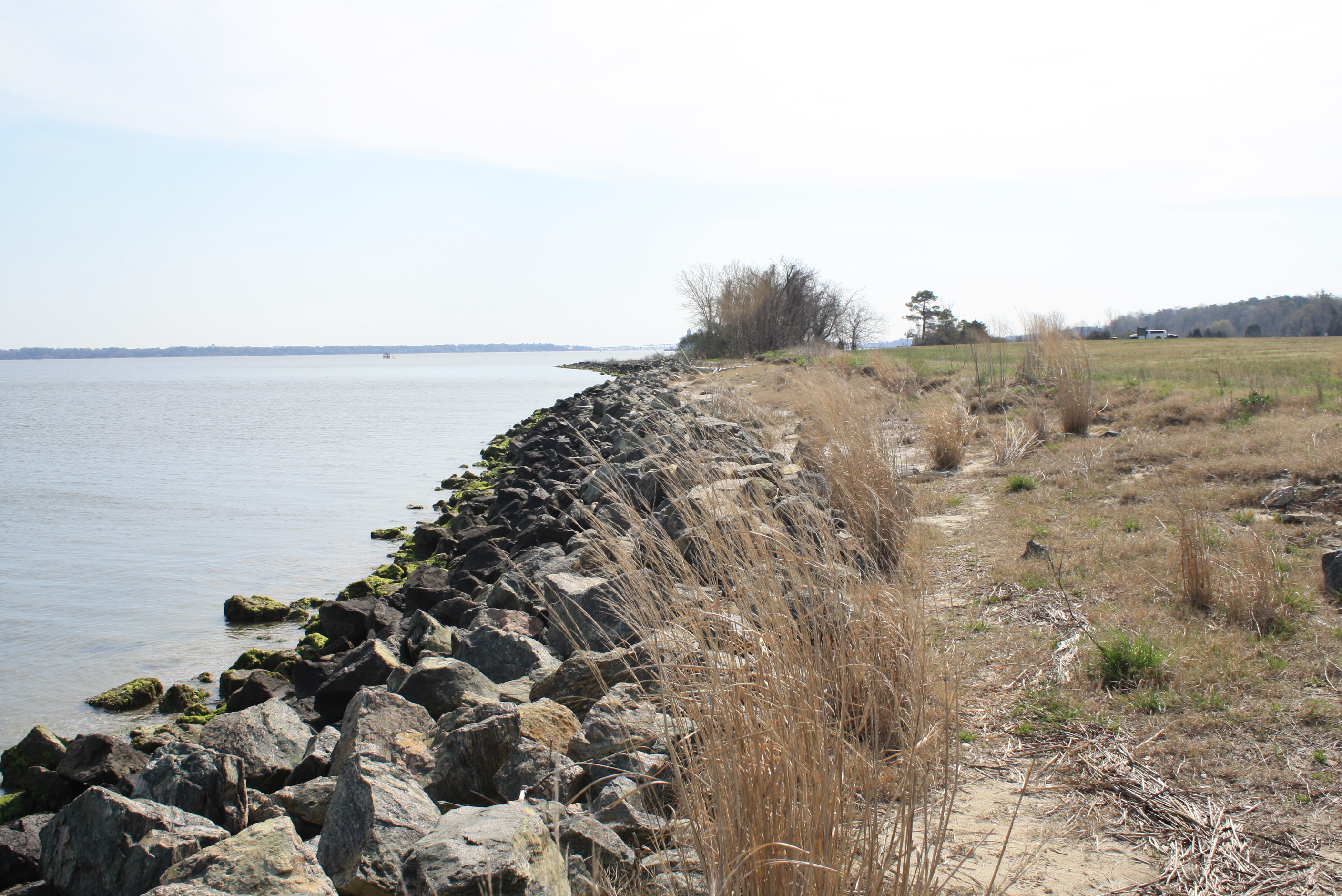News Release
You are viewing ARCHIVED content published online before January 20, 2025.
Please note that this content is NOT UPDATED, and links may not work. For current information,
visit https://www.nps.gov/aboutus/news/index.htm.

NPS Photo
|
Subscribe
|
Contact: Lauren Gurniewicz, 757-871-0590
Yorktown, Virginia – On November 30, 2020, the National Park Service (NPS) at Colonial National Historical Park began a shoreline protection and enhancement project along the western shore of the York River, near Indian Field Creek (between K6 and K7) and Felgates Creek (just west of K9), northwest of Yorktown, Virginia.Fishing or other access to the shoreline will be restricted in portions of the project area until March 1, 2021, for the protection of visitors and contractors. Up to four parking spaces in the Powhatan Village and Ringfield Plantation pullouts will be reserved for contractor use. However, the contractor will only work in one zone (Indian Field or Felgates) at a time.
This phase of work is a subset of an overall plan to protect about three miles of York River shoreline northwest of the Navy pier in order to maintain the stability of the Colonial Parkway. The work will also protect and enhance wetland habitats, protect archaeological sites and enhance oyster habitats to improve water quality in the York River and the Chesapeake Bay.
The project is funded through entrance fees collected at national parks like Colonial National Historical Park and other parks around the country. The Federal Lands Recreation Enhancement Act allows the NPS to collect and retain revenue and requires that fee revenue be used to enhance the visitor experience. Fees have become an important source of revenue used to improve the visitor experience, including recreational opportunities, at Colonial National Historical Park and throughout the national park system.
About Colonial National Historical Park. Colonial National Historical Park was established in 1930 to preserve important 17th and 18th century sites that tell the story of English colonization and the struggle for American independence. Jamestown’s legacy includes representative government, but also slavery, a brutal institution that spread throughout the colonies. At Yorktown, Virginia colonists fought in the last major battle of the American Revolutionary War. The 23-mile Colonial Parkway links the sites and is recognized as an “All-American road”. Learn more online.
Last updated: February 19, 2021
